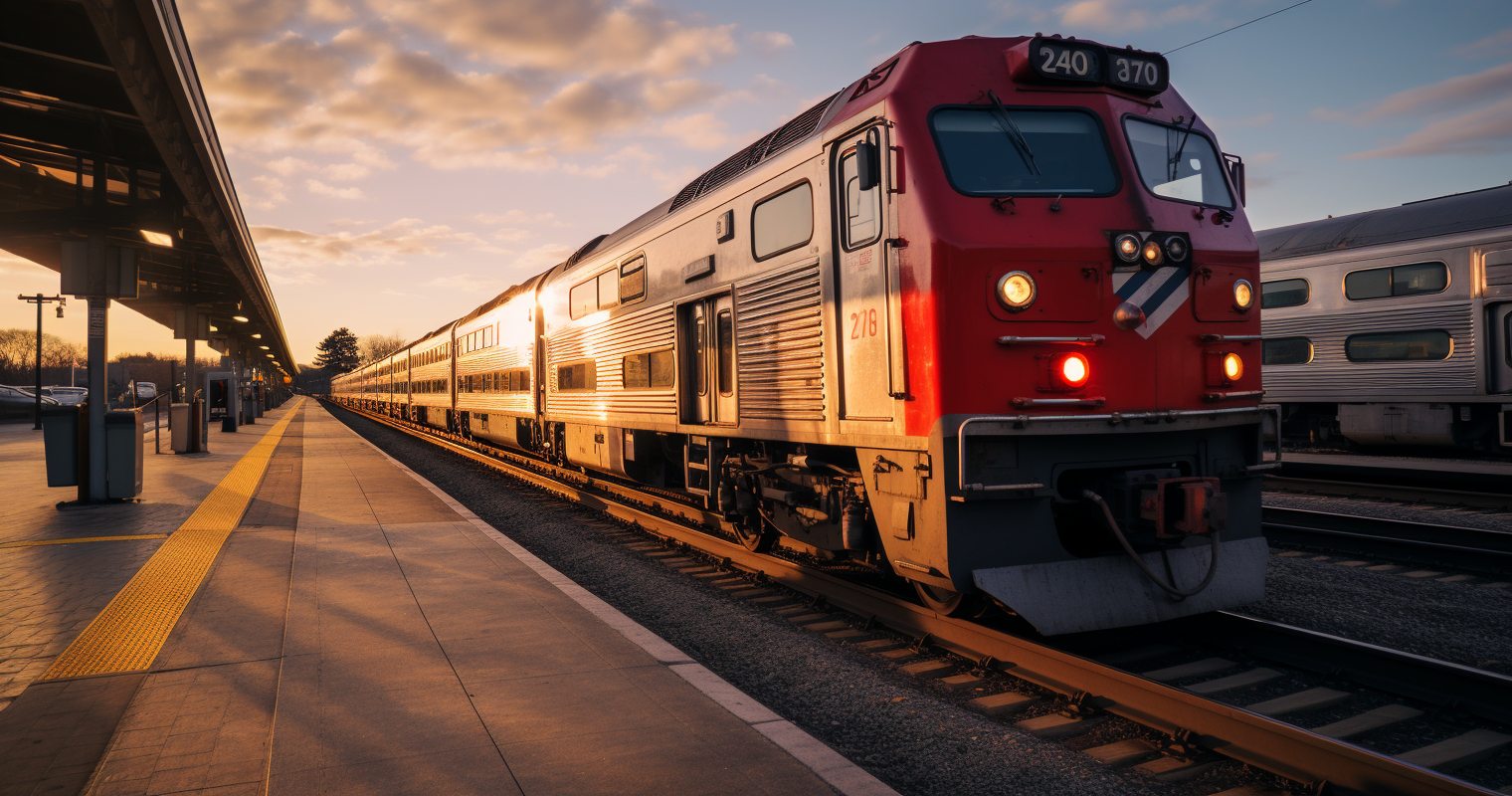Germany has a well-developed rail network that is operated by the state-owned company Deutsche Bahn. The rail network covers most of the country and provides comfortable and efficient travel options for both locals and tourists. In this article, we will explore the standard of rail travel in Germany, the different classes of service, where to find information on timetables and tickets, and more.
Overall Standard of Rail Travel in Germany
The overall standard of rail travel in Germany is excellent, with modern and comfortable trains that offer scenic views of the German countryside. The trains are well-maintained, and the staff is friendly and helpful. The routes offer a mix of day trips and longer journeys, with stops at popular destinations such as Berlin, Munich, and Frankfurt.
Classes of Rail Travel in Germany
There are three classes of rail travel in Germany: standard, first class, and sleeper. The main differences between the classes are the level of comfort and amenities provided.
Standard class: This is the most basic class of service, with comfortable seats and access to a dining car where passengers can purchase food and drinks.
First class: This class offers more comfortable seats with extra legroom, and complimentary food and drinks served at your seat.
Sleeper class: This class offers a private compartment with a bed, sink, and toilet, as well as complimentary food and drinks.
Finding Information on Rail Timetables and Ticket Prices
The best place to find information on rail timetables and ticket prices in Germany is on the Deutsche Bahn website (https://www.bahn.com/en/view/index.shtml). The website has a user-friendly interface and provides detailed information on the different train routes, schedules, and ticket prices.
Buying Rail Tickets and Reservations in Germany
Rail tickets and reservations can be purchased directly from the Deutsche Bahn website, at train stations, or from authorized travel agents. It’s recommended to book in advance, especially during peak travel periods, as trains can sell out quickly.
Contact details for Deutsche Bahn are as follows:
- Phone: +49 1806 99 66 33
- Email: service@bahn.de
- Address: DB Dialog GmbH, Postfach 10 20 41, 69010 Heidelberg, Germany
Types of Rail Tickets and Discounts
There are several types of rail tickets available in Germany, including one-way, round-trip, and multi-ride tickets. The prices vary depending on the class of service and the distance traveled.
Deutsche Bahn also offers several discounts, including:
- Bahncard: A discount card that provides up to 50% off train tickets for a year.
- Group discounts: Groups of six or more passengers receive a 10% discount on standard and first class tickets.
- Youth discounts: Passengers under the age of 27 receive a 25% discount on standard and first class tickets.
Rail Travel for Disabled Passengers
The rail network in Germany is generally accessible for disabled passengers. Most trains have wheelchair access, and the stations are equipped with ramps and elevators. Deutsche Bahn also offers assistance for disabled passengers, including boarding and disembarking assistance, and the use of an onboard wheelchair.
Underground Trains or Metros in Urban Areas
Germany has several underground trains or metros in urban areas.
Berlin U-Bahn
The Berlin U-Bahn is a rapid transit system that serves the city of Berlin and its surrounding areas. It has 10 lines, covering a total distance of 146 kilometers, with a total of 173 stations. The metro runs 24 hours a day, with trains running every 5-10 minutes during peak hours.
The Berlin U-Bahn is modern and efficient, with air conditioning and Wi-Fi onboard. The trains run frequently, and the network is well-connected to other forms of public transportation in the city. The metro is also affordable, with a one-way ticket costing 2.80 euros.
Munich U-Bahn
The Munich U-Bahn is a rapid transit system that serves the city of Munich and its surrounding areas. It has eight lines, covering a total distance of 95 kilometers, with a total of 96 stations. The metro runs from 4:00 am to 1:00 am on weekdays, and from 6:00 am to 1:00 am on weekends.
The Munich U-Bahn is modern and efficient, with air conditioning and Wi-Fi onboard. The trains run frequently, and the network is well-connected to other forms of public transportation in the city. The metro is also affordable, with a one-way ticket costing 2.90 euros.
Hamburg U-Bahn
The Hamburg U-Bahn is a rapid transit system that serves the city of Hamburg and its surrounding areas. It has four lines, covering a total distance of 104 kilometers, with a total of 91 stations. The metro runs from 5:00 am to 1:00 am on weekdays, and from 5:00 am to 2:00 am on weekends.
The Hamburg U-Bahn is modern and efficient, with air conditioning and Wi-Fi onboard. The trains run frequently, and the network is well-connected to other forms of public transportation in the city. The metro is also affordable, with a one-way ticket costing 1.60 euros.
In conclusion, rail travel in Germany offers a comfortable and efficient way to explore the country’s diverse landscapes. There are three classes of service available, with options for every budget. Information on timetables and ticket prices can be found on the Deutsche Bahn website, and tickets can be purchased online or at train stations. Discounts are available for Bahncard holders, groups, and youth passengers. The rail network in Germany is generally accessible for disabled passengers, with assistance available upon request. The Berlin, Munich, and Hamburg metros provide modern and efficient modes of transport in urban areas.

